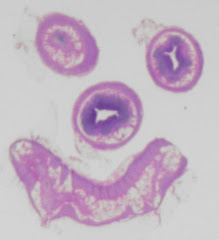Being among the first PAs in Canada, if not the first [surviving] Canadian PA, now that my career is over, I can do a bit of a retrospective...
At the beginning of the 1970s, when PAs were foreign to almost all Canadian hospitals, those in eastern Canada who hired me as their first PA, went out on a limb. They took a risk initially, but they supported me as I learned medicine and pathology, dissection techniques, and of all methodology around handling surgical pathology specimens and creating a competent gross description. I became the best Pathologists' Assistant that I could be and became an asset to the department; so much so that within the ensuing 30 years, over a dozen more PAs were hired at that site. I eventually rose amongst the ranks of the department of Anatomical Pathology and became the Manager of the department. This all occurred many years before the second phase of my career on the opposite side of the continent, closer to the left coast. Again, those who hired me as their first PA took a risk. I learned after I arrived both the reason why I had been hired and why for 30+ years, PAs had not been part of the fabric of the healthcare system in this area. My new boss at that time was very unpopular and took a ton of flack from many corners of the area, mostly from the pathologists, a lot of whom were soundly against PAs. I was re-reading some of the Comments to this blog recently. I was reminded of the toxic climate that was present in the area at that time. I feel very fortunate that I was shielded from much of it as I was working very long hours in those days (yes, I worked seven days a week at first). It was comparatively easy to focus on my work; to do the best job that I could for the local patients.
That was 18 years ago. Whereas I was the only PA at this site for a while, relatively soon, another PA was hired, then another. The PA compliment at this site is now four and I predict that a fifth PA position will be justified within the next five years or so.
Among the older Comments that I was reading recently were a few (from someone who would not give her/his name) stating that s/he would never recommend hiring a PA as part of the healthcare team; that they were 'more trouble than they were worth.' As the Comment was anonymous, I did not respond. I know however that the PAs in this region all do a fine job of grossing surgical pathology specimens; that they abide by grossing protocols, written using current best international practices, and which have been approved region-wide by senior pathologists.
I have known many pathologists throughout my lengthy career; some very good and some not quite as good. A few of them were more trouble than they were worth. I know that their bosses felt similarly. How it is that some people feel that, when making anonymous statements, that they can be so outspoken and hurtful escapes me - but it is a characteristic of some humans unfortunately. At the other end of the scale are those who appreciated the hard work that the Technologists, Cytotechnologists, Technicians, clerical staff and PAs did with them and/or for them. While we all know that nobody, including so-called 'professional staff', is perfect, we all need to be open to change and to improving our practice. All of us. We need to be receptive to suggestion and we all have to speak up. All of us. In this age when information is increasing and changing at a furious pace, we must keep an open mind to change. If we insist on attempting to maintain the status quo, our practice will suffer.
End of rant. Sorry. I am sure that for most of you, this is old news and that you agree completely.
Another Comment was from an American PA trainee who hoped to get employment in Canada. I want to apologize to that individual for not responding promptly. I had been 'convinced' years ago to not post to this blog by my brow-beaten and harassed boss. I hope that you are by now enjoying a PA job somewhere in Canada as it sounded as though you might have had a less than ideal experience in the USA.
Yet another Comment from someone (anonymous of course!) who said that they knew me and had worked with me stated that I was being disingenuous (my word, not hers/his) - that I was a different person in my blog than I was in person. 'Not so' is all I have to say to that. End of story.
More to come.



